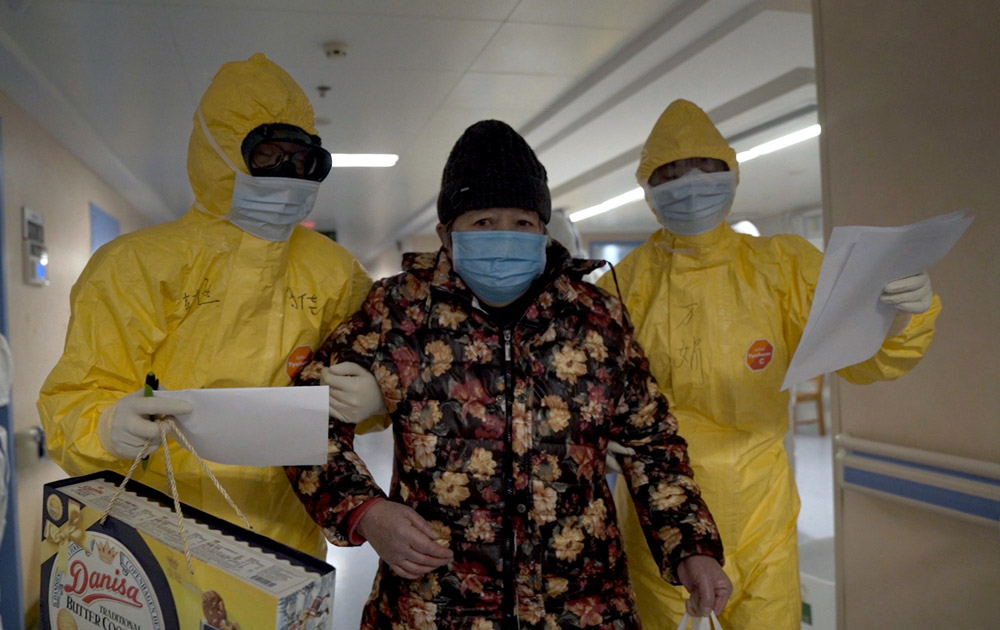When filmmakers inevitably began turning their cameras on as the COVID-19 pandemic started to unfold, it was never going to be a question of what harrowing imagery they would capture, but what they could do with it. During an ongoing crisis that has touched us all, there’s little need in the moment to remind of what the airborne virus can do to the respiratory system or the panic that set in during the earliest days of the crisis, and as important as Hao Wu’s “76 Days” surely will become to the historical record, charting how a Wuhan hospital handled care in the city where the virus originated, the director is conscious of the time it’s coming out in, handling the responsibility of being the first out to market with extraordinary care, consideration and compassion.
Setting up inside a hospital where the doors have been largely kept shut so as not to overwhelm the staff, the filmmaker opens “76 Days” with its most overtly dramatic scene, watching the adult daughter of a COVID patient yell after her father as his body is being rolled out of the clinic, learning that he has passed and she’ll be unable to see his face out of fear of contamination. Her anguished screams are enough to know of her devastation, carrying through the rest of the film where an interesting narrative dilemma becomes how to convey the extent of a crisis that can’t be seen on people’s faces when everyone is covered from head-to-toe in hazmat suits and the film rarely, if ever, leaves the walls of the hospital. Hao gives himself the duration of Wuhan’s lockdown from January 23rd to April 8th to come up with a throughline that’s compelling beyond the film’s obvious urgency, chronicling how the virus gradually humbles all who encounter it until it can become manageable.
Although no names are given for the patients, you come to connect with them deeply, from the elderly gentlemen constantly looking for a way out to the married couple assigned to separate rooms and kept away from each other as they recover at different rates to the expectant parents who must venture in on their due date, albeit with the father unable to be near the delivery room for his own safety. It is an indication of the topsy-turvy world outside that the scene involving birth is arguably the calmest in the film, involving a procedure the doctors completely familiar with and it has a happy outcome – even if the baby has to be on a ventilator shortly after emerging from the womb.
As easy as it is to marvel at the access the film gets and how close the camera is when the two co-directors that Hao worked with — Weixi Chen and another who remains anonymous, both reporters on the ground in Wuhan — risk getting the virus themselves, it becomes the way the film expresses the complications that come with the required distancing that proves most striking, with relatives unable to see each other – in the case of the married couple, even if they’re less than 20 feet apart – and medical staff communicating outside the hospital for diagnoses and pooling collective knowledge on how best to treat patients, learning from their families and other physicians from afar.
Hao draws out the burden on doctors and nurses whose medical skills are evident, finding themselves at a loss for how to tend to those they care for emotionally when they’re overworked and processing what they’re seeing with the same information as those afflicted by it, and while you see grace under pressure exemplified time and again in “76 Days,” the film does well not to celebrate them when you know they’re hardly feeling like heroes, recognizing the best way to honor them is to depict how what they’ve experienced will never leave them, just as what’s been captured will never leave you.
“76 Days” will be streaming through DOC NYC from November 11th through 19th.




